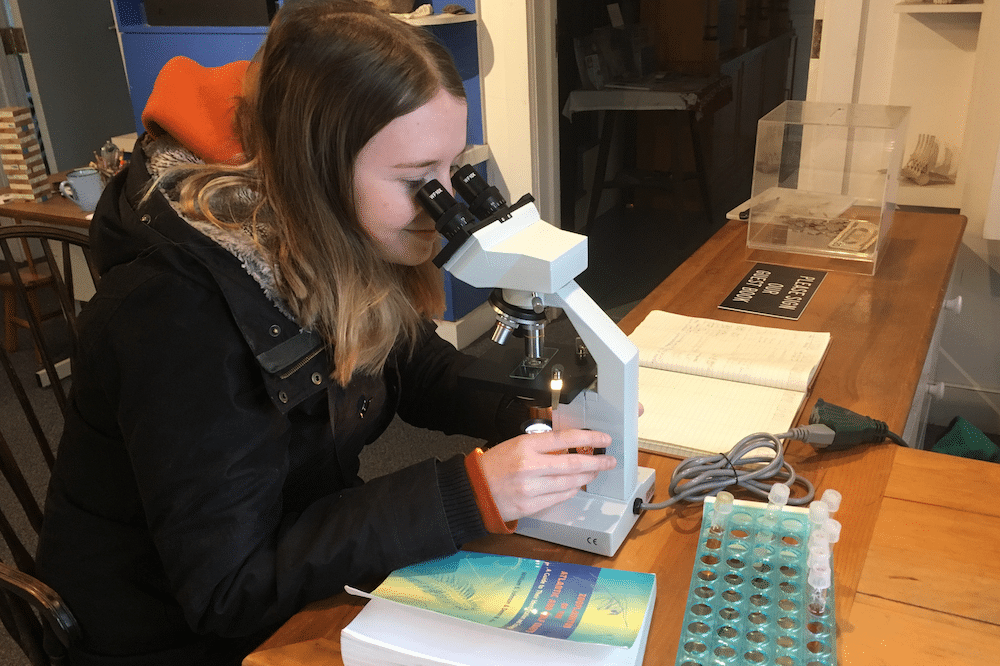Have you ever looked through a microscope and seen a community so small you never could have imagined it and then suddenly it comes to life? Here’s your chance: The Maria Mitchell Association is hosting four microscope workshops on Nantucket, one each month for the next four months. The program, “Tiny Creatures, Big Impact,” is designed for ages 14-adult. Each session will have a different theme and a discussion with hands on opportunities to use and understand the new microscopes at the Maria Mitchell Association’s newly-opened Research Center.
Maria Mitchell, America’s first professional woman astronomer, believed in learning by doing. In that spirit, participants will be able to study live specimens gathered from all over Nantucket, including insect larvae, symbiotic gut ciliates, baby jellyfish, worms, and even organisms living inside of other animals.
During the microscope program, participants will use both dissecting stereo microscopes and compound microscopes. Dissecting stereo microscopes have a long working distance, and thus a lower magnification ability, but this allows the user to manipulate the specimen, like during dissections. A typical dissecting microscope can magnify two to seventy-two times through its lens. It enables the user to look at the exterior of any small object. Compound microscopes can magnify up to 1000 times and are used to view things that are not visible with the naked eye. Light must be able to pass through those objects.
This is a four-part program that costs $15 for Members and $20 for Non-Members per class. It will be held in the Maria Mitchell Association’s Research Center. It will be held 6 to 7 pm on February 13, March 13, April 10, and May 8. Pre-registration is required – visit mariamitchell.org for more information and to sign up.
The Nantucket Maria Mitchell Association (MMA) is a private non-profit organization. Founded in 1902, the MMA works to preserve the legacy of Nantucket native astronomer, naturalist, librarian, and educator, Maria Mitchell. The Maria Mitchell Association operates two observatories, a natural science museum, an aquarium, a newly opened research center, and preserves the historic birthplace of Maria Mitchell. A wide variety of science and history-related programming is offered throughout the year for people of all ages.

